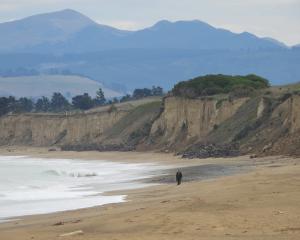It is time for North Otago farmers to put their money where their mouths are and decide whether to invest in expanding an irrigation scheme that has already brought big economic, employment and social benefits to the region.
Already, the Waitaki District Council has decided, subject to conditions being met, to extend a loan and invest up to $17 million in stage 2 expansion of the North Otago Irrigation Company's (NOIC) scheme, providing enough farmers buy shares to raise a minimum of $14 million.
NOIC is next week sending out its scheme expansion prospectus and investment statement to farmers in the stage 2 command area as far south as Kakanui Valley Rd and Maheno, but the final area will depend on the location of farms that buy shares.
The expansion will cover 10,000ha, but already some shares have been sold. The offer of the remaining 7969 shares closes on December 12.
When the scheme obtained water resource consents to take 8.22cumecs from the Waitaki River, it built the first stage of 10,000ha, which was officially opened in October 2006.
That first stage, according to a 2010 economic benefits study, had created 76 additional on-farm jobs.
The study showed farms now earned $44 million a year more than before irrigation, with $29 million of that spent in local towns and communities.
There had been the huge flow-on effect from on-farm investment, including new houses and other construction.
Population growth was higher than predicted, there was a higher proportion of people aged 15-64, a higher proportion of children up to 15, higher household and personal incomes and more fulltime employment in the irrigated area.
The original consents included enough water for a future expansion south to the Kakanui Valley.
To help potential shareholders decide whether to buy into stage 2, NOIC is planning a series of on-farm information workshop field days to address issues such as changing farming systems, behind-the-scenes operation of the irrigation network, how to mitigate environmental impacts and understand the commitments, costs and expectations of environmental management plans with the Otago Regional Council and how to convert from dryland to irrigated farmland.











